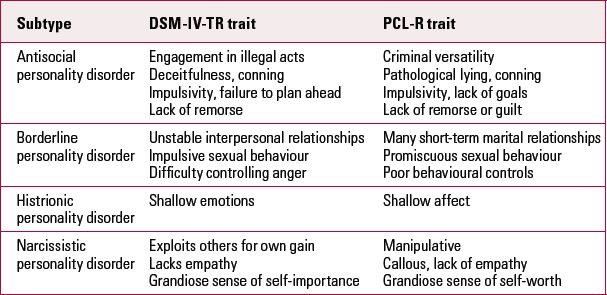

Is there a generic alternative to the medication you're prescribing?.Are there medications that can help? Is so, what are the possible side effects?.How often will I need treatment, and for how long?.How much can I expect my symptoms to improve with treatment?.What treatments are most likely to be effective for me?.

Some basic questions to ask your doctor include: Questions you want to ask your doctor to make the most of your appointment.All medications you take, including the names and doses of any medications, herbs, vitamins or other supplements.

DSM 5 ANTISOCIAL PERSONALITY DISORDER PROFESSIONAL
Seek a mental health professional who has training and experience in managing antisocial personality disorder. He or she can also recommend strategies for coping.
DSM 5 ANTISOCIAL PERSONALITY DISORDER HOW TO
If you have a loved one with antisocial personality disorder, it's critical that you also get help for yourself.Ī mental health professional can teach you skills to learn how to set boundaries and help protect yourself from the aggression, violence and anger common to antisocial personality disorder. People with antisocial personality disorder often act out and make other people miserable - with no feeling of remorse. Request an Appointment at Mayo Clinic Coping and support Skills for family members Certain drugs are usually prescribed cautiously because they have the potential for misuse. Doctors may prescribe medications for conditions sometimes associated with antisocial personality disorder, such as anxiety or depression, or for symptoms of aggression. There are no medications specifically approved by the Food and Drug Administration to treat antisocial personality disorder. Therapy may include, for example, anger and violence management, treatment for alcohol or substance misuse, and treatment for other mental health conditions.īut psychotherapy is not always effective, especially if symptoms are severe and the person can't admit that he or she contributes to serious problems. Psychotherapy, also called talk therapy, is sometimes used to treat antisocial personality disorder. Treatment depends on each person's particular situation, their willingness to participate in treatment and the severity of symptoms. Look for medical and mental health professionals with experience in treating antisocial personality disorder. Antisocial personality disorder is difficult to treat, but for some people, treatment and close follow-up over the long term may be beneficial.


 0 kommentar(er)
0 kommentar(er)
